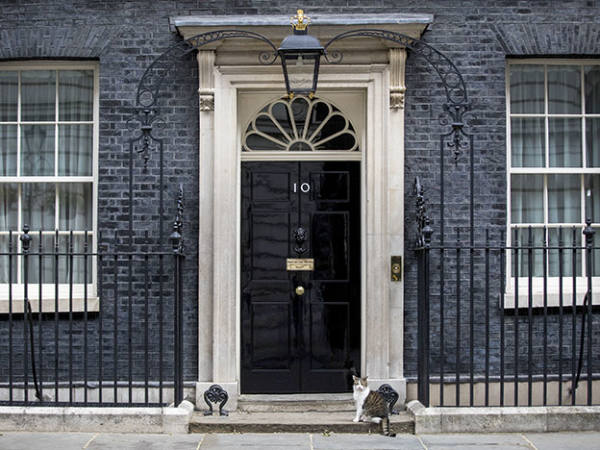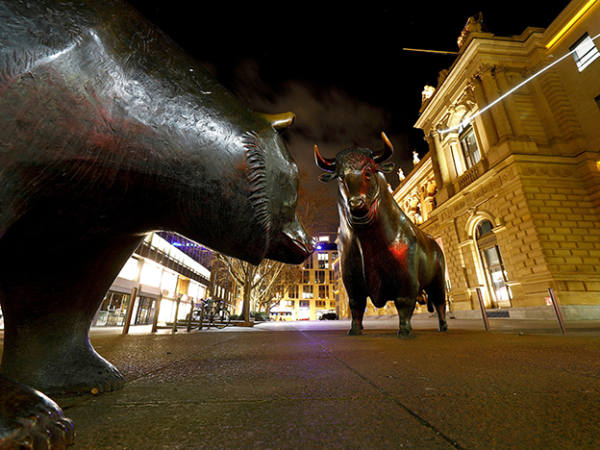- Investors’ Chronicle has found that a controversial ad by cryptocurrency platform Luno was explicitly approved by local government officials
- The findings have intensified calls for authorities to do more to clamp down on questionable investment promotions
A controversial bitcoin ad was explicitly approved by public officials several months before it was banned for irresponsibly misleading consumers, raising questions about how effectively regulators are protecting investors from dubious promotions.
Investors' Chronicle has found that a heavily criticised campaign by cryptocurrency trading platform Luno, which stated “If you're seeing Bitcoin on the Underground, it's time to buy”, was referred to Transport for London for approval by its advertising contractor before being plastered across the capital’s tube and buses earlier this year.
The findings have now intensified calls for authorities to wise up and do more to clamp down on questionable investment promotions, as regulators scramble for ways to shield vulnerable consumers from a bombardment of ads during the crypto hype.
“I cannot believe [the Luno ad] got through [TfL’s checks],” said Siân Berry, leader of the Green Party and a London Assembly member, who has pushed for tighter regulation of advertising on the capital’s public transport network – one of the world’s largest advertising spaces.
“We have no choice but to spend time on [public transport], so it is so wrong that it should be, for want of a better word, polluted with messages that [encourage people to take risks with their money],” she added.
Promotions on TfL’s trains and buses, which transport millions of passengers every day, are generally overseen by its private contractors, Global and JCDecaux (FR:DEC). But certain advertisements have to be explicitly approved by the public body’s staff, such as posters featuring nudity or religious symbols.
In response to a freedom of information request sent by the IC, TfL confirmed that since the last bitcoin bull run in 2018, it has also asked its media partners to send all cryptocurrency adverts to its officials for review. This meant that Luno’s ad was directly signed off by TfL prior to running in December, after it was deemed compliant with its policies.
About five months after Luno’s poster first ran, however, the Advertising Standards Authority issued a ban on future publication of the advert. Following three separate complaints from the public, the national advertising regulator had found that the company “irresponsibly” suggested buying bitcoin was easy, potentially encouraging those with only limited knowledge to invest. Luno soon decided to replace its existing adverts with new posters stating: “Luno, your app to buy bitcoin.”
Luno is not the only cryptocurrency business to be censured by the ASA this year, as companies look to capitalise on the bitcoin frenzy. In March, as the price of bitcoin soared to more than triple its 2018 highs, the regulator banned a newspaper ad by crypto exchange Coinfloor, which targeted pensioners with the phrase “there is no point in keeping your money in the bank”.
But as crypto promotions continue to proliferate on public transport and online, regulators themselves suggest they are struggling to keep up. This week, Financial Conduct Authority chair Charles Randell warned that social media users were increasingly being lured into losing their savings “with delusions of quick riches”, highlighting Kim Kardashian’s recent promotion of a crypto token just one month after it was created by anonymous developers.
Susannah Streeter, investment analyst at Hargreaves Lansdown (HL.), said that although she was “surprised” the Luno ad was approved by TfL, regulating cryptocurrency ads remained “a grey area”.
To clamp down on misleading promotions, she argued, top-down legislation is needed from politicians to clarify what is acceptable, so regulators do not have to make difficult case-by-case decisions. She pointed to the controversy surrounding the government’s recent online harms bill, which was criticised for not including legal restrictions on investment promotions.
Berry also argued that more comprehensive rules are needed to dictate what is and is not allowed on TfL’s advertising estate, suggesting there is a “conflict” when the organisation that receives income from these adverts is also making ethical decisions about which ones harm the public good.
“There needs to be a more root and branch review of TfL advertising,” she said. “[Currently], it seems like we are playing whack-a-mole”
Perhaps highlighting the difficulty of retrospectively regulating crypto promotions, some social media users have recently reported seeing the banned Luno ad in London. The IC also saw the poster on one bus in Shepherd’s Bush this July, more than a month after the ASA’s ruling.
A spokesperson for TfL said one Luno ad photographed by a Twitter (US:TWTR) user on the underground has now been removed, after it was “posted in error”. The poster seen by the IC should no longer be running, they added, and TfL is working with its advertising partner to ensure any remaining ones are removed.
Chris Reader, head of commercial media at TfL, added that the Luno ad was originally approved after the public body received advice from the Committee of Advertising Practice, a sister organisation of the ASA, which found it “seemed to comply” with its codes.
“When reviewing copy now from cryptocurrency brands who wish to advertise on our estate, we ensure that campaigns contain sufficient information to comply with both our policy and the ASA ruling,” he said.
Additional reporting by Arthur Sants











